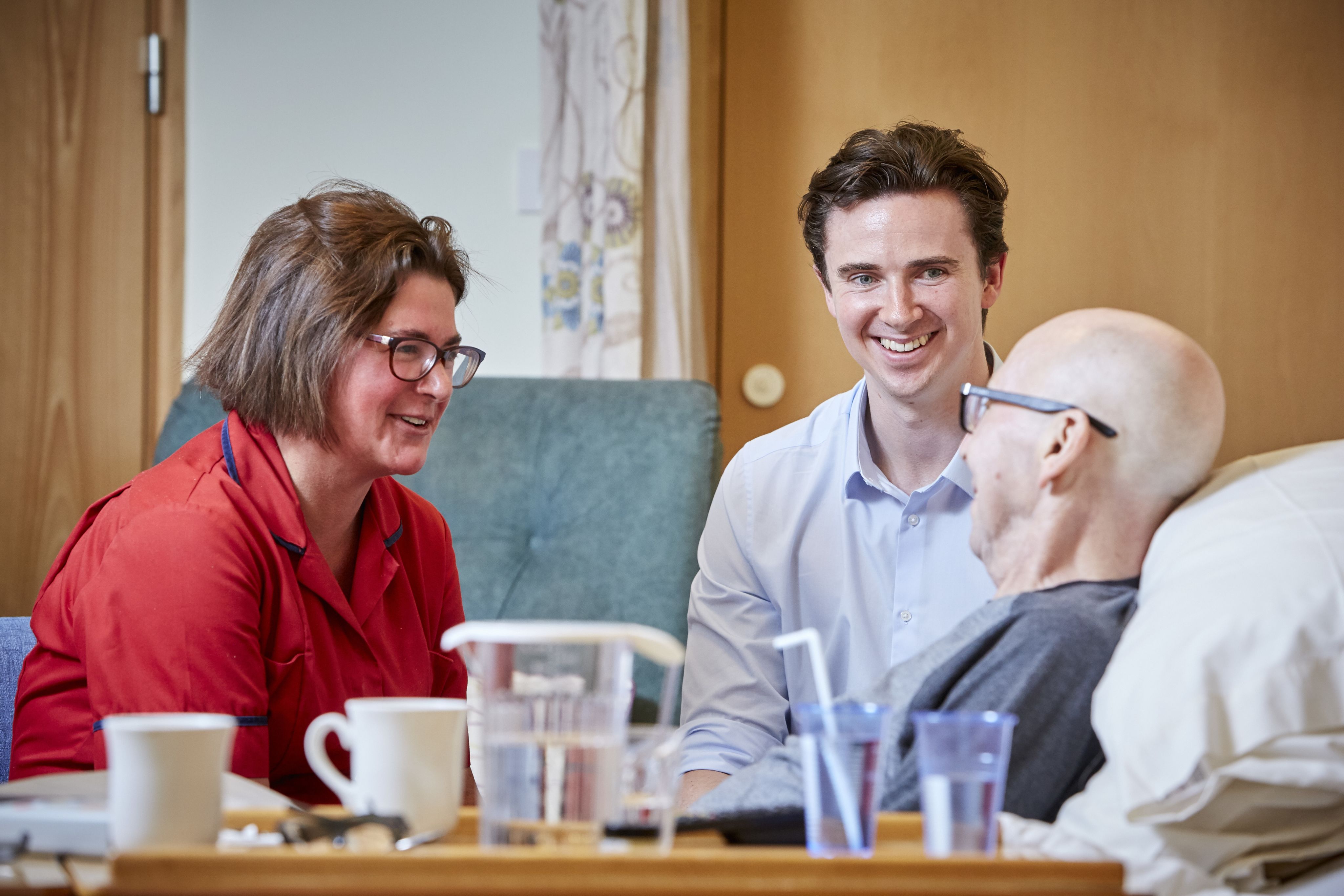Partners in care

A pioneering partnership between the University and St Gemma’s Hospice in north Leeds is transforming care for those in the final days of their life.
It was while visiting her own mother on a cancer ward that the importance of palliative care came starkly home to Dr Lucy Ziegler: “I heard a consultant talking to a patient at the next bed. She said the treatment was no longer effective and added: ‘I think you should go home and think about putting your affairs in order.’
“I drove home imagining what I’d do if someone said this to me. It felt like ‘get ready to die’. How on earth do you do that?”
The impact of the conversation was compounded the following week by an almost identical conversation between an oncologist and Lucy’s own mum, who died a few days later.
“I was no stranger to cancer hospitals – I worked in one – but that day everything I saw and heard took on greater significance. It seemed to me that the patient had been cast adrift without a paddle and it made me want to understand why palliative care is not routinely integrated into cancer care when patients have advanced disease or their prognosis is uncertain.

Dr Lucy Ziegler, Associate Professor in Palliative Care
Dr Lucy Ziegler, Associate Professor in Palliative Care
“Palliative care can be delivered alongside cancer treatment or come into play when cancer treatment ends. But for too many patients it never comes into play at all.”
Palliative care is about maximising the quality of life rather than curing disease, and has been shown to have significant benefits. Even so, less than 0.3 per cent of the £500 million spent on cancer research each year goes to end-of-life care.
A University Academic Fellowship allowed Lucy to investigate some of these key issues. She examined the details of 2,500 patients who had died from cancer in Leeds and found that around a third had not been referred to specialist palliative care; the national picture was even worse.
She uncovered significant misconceptions: “I wrongly assumed that patients would all wish to be free from pain, but this wasn’t always true. One patient said that while the painkillers worked well, they made him too tired to drive or see his grandchildren. The pain of not seeing them was far greater than that caused by the cancer.”
There are also stigmas to overcome: “Patients told us they didn’t fully understand the term ‘palliative care’ or felt it was synonymous with death. Oncologists said that raising the possibility of involving palliative care felt like they were failing their patients or abandoning them.”
As Associate Professor in Palliative Care, Lucy’s research has contributed to St Gemma’s becoming the world’s first University Teaching Hospice. Established in 2011, the St Gemma’s Hospice Academic Unit is dedicated to building both research capacity and clinical expertise to improve the care of patients with advanced disease.
Its work both serves the local Leeds community, and meets a growing demand for expertise in the field, providing teaching and clinical placements for 260 undergraduate medical students a year, increasing numbers of whom pursue careers in palliative care.
Find out more about how you can help support important collaborations and research at Leeds.
What did you think?
